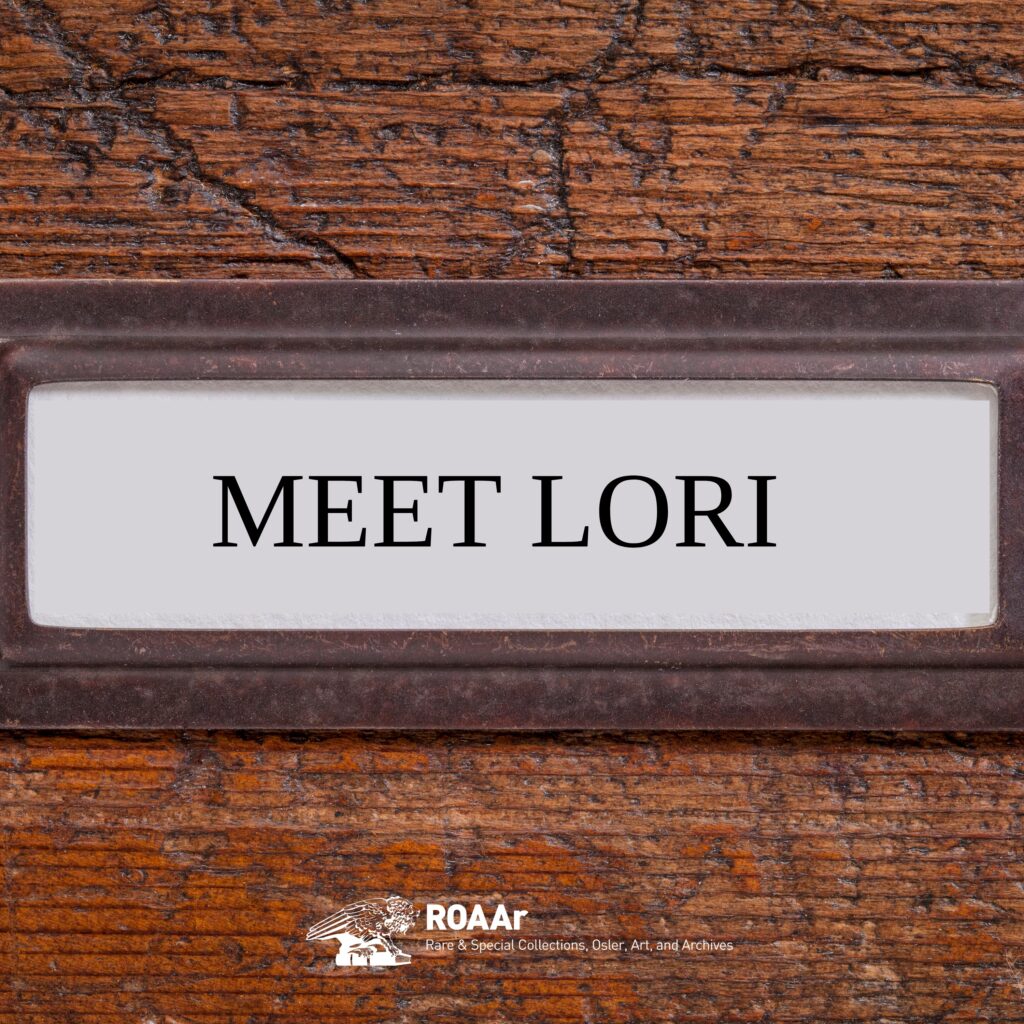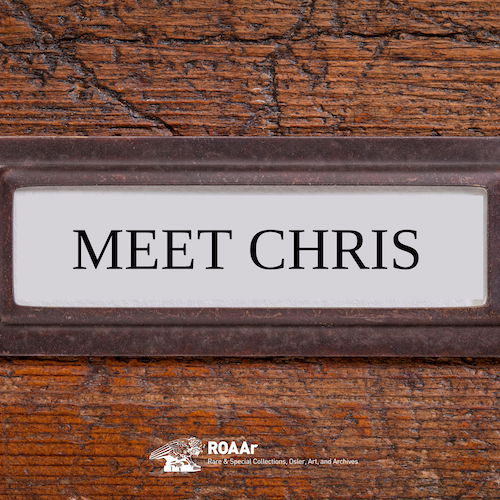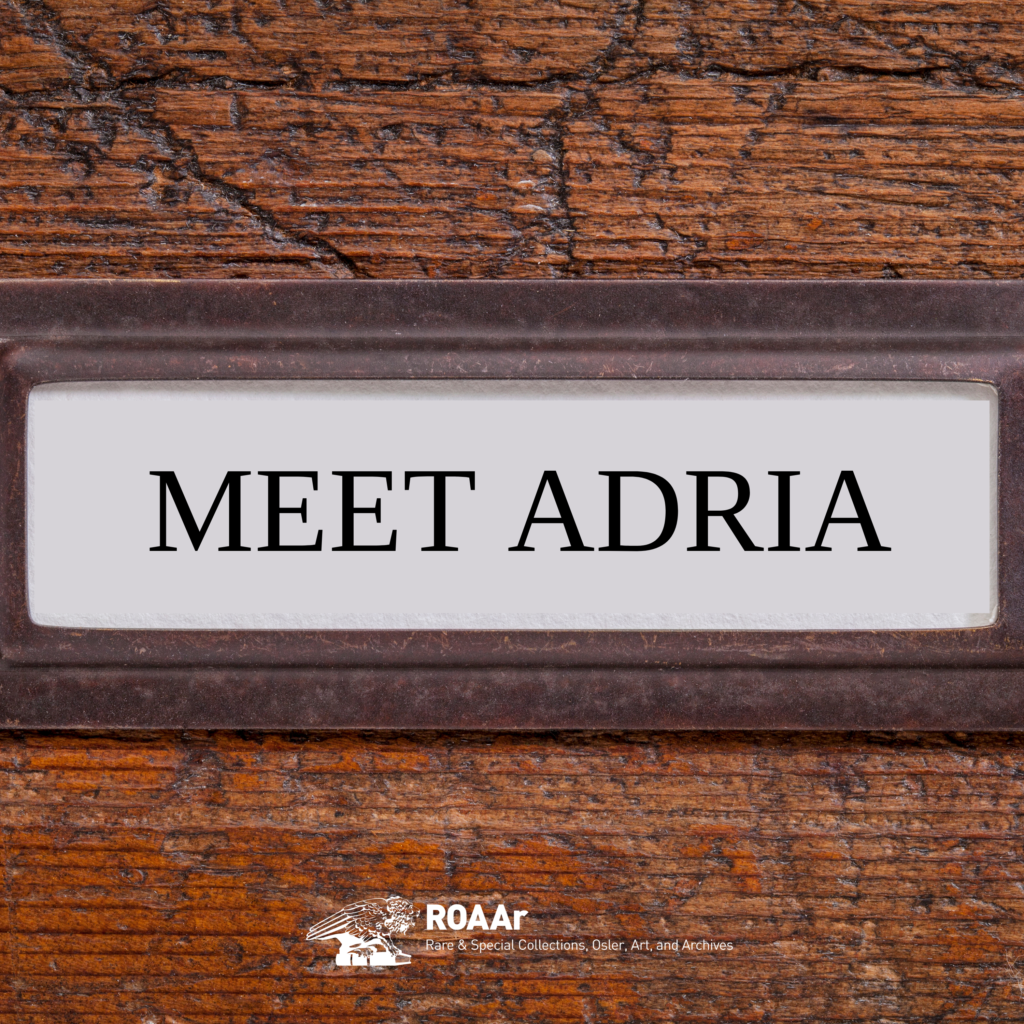By Labiba Faiza, Student Staff, ROAAr McGill Library

Earlier this year, I joined the McGill Library as a student employee, working mainly on a podcast that was still in the works at the time. Now that it is finally available to the public, let me tell you why you should listen to it. Rare Books & Special Collections, Osler Library of the History of Medicine, Art, and Archives’ (ROAAr) new podcast, Voices from the Footnotes, brings forth a collection of untold and hidden stories – from the past and the present – about McGill and its people. This project highlights the narratives and experiences of McGillians whose voices are absent from the university’s archives and gives a peek into the workings of ROAAr.
In the making since 2019, the goal of this podcast is to make library collections more accessible and engage with them in a meaningful way by telling McGill stories that deserve to be heard. While it is undeniable that McGill’s archives are very rich, it is also true that they reflect the people in power, who have been historically white and male. The institution’s 200-year history includes BIPOC and other marginalized people, whose experiences and contributions are unfortunately not reflected proportionately in the archives. Through this podcast, ROAAr is attempting to fill in some of these gaps and present a more inclusive, authentic, and complete story of McGill, one that includes both the good and the bad.
The podcast starts off with an episode on the Gault Nature Reserve in Mont St-Hilaire, owned by McGill since 1958. Although the land was originally stewarded by the Abenaki community, the archives do not hold any records of the land’s Indigenous history, but rather the records of colonial land-grants and ownership. Based on those records, librarian/archivist Adria Seccareccia goes through the land’s ownership history and timeline, starting from 1694. We also hear from former and current First Peoples’ House staff (Paige Isaac, Allan Vicaire, and Tanya Lalonde) about what the land means to them and the meaningful ways it is being used by McGill’s Indigenous community now. They share their experiences taking part in the annual retreat for Indigenous staff and students, where they get to connect with the place and bond with each other through communal meals, sharing circles, games, drumming, beading, and more. Their stories bring forth a more holistic and spiritual understanding of the Gault Nature Reserve, which is not reflected in the colonial, capitalist, property-oriented conception of the land in most of its historical records. You can listen to the episode here.
Shorter episodes make up Footnotes, snapshots featuring the people behind ROAAr – staff, librarians, archivists, and students – as they recount tales from their childhoods, how they ended up at McGill, and tell us about the work they do at ROAAr behind the scenes.
The roster of guests on Voices From the Footnotes is phenomenal, composed of remarkable McGillians from different time periods, with varying affiliations to McGill. Each one brings to the microphone stories that are worth preserving, remembering, and learning from. Here is a preview of guests featured in upcoming episodes:
- Beryl Dickinson-Dash, the first Black student ever to win McGill’s Winter Carnival Queen pageant, in 1949. Her historic victory brought her international fame, love letters from deployed soldiers, and more. Read more from the CBC.
- Glyne Piggott, former Associate Dean of Arts (retd. 2010). From bringing reforms in the curriculum to pushing for racial and gender equity, his contributions to McGill in his 30+ years of service are numerous.
- Adrienne Piggott, former student and current Senior Advisor for Procurement, Co-chair for the Subcommittee for Racialized Ethnic Persons, and Governor for Administrative and Support Staff. McGill has been home to her since she was 8 months old, and now she is working relentlessly to make the institution more inclusive despite the countless challenges, like her father.

















Leave a Reply
You must be logged in to post a comment.